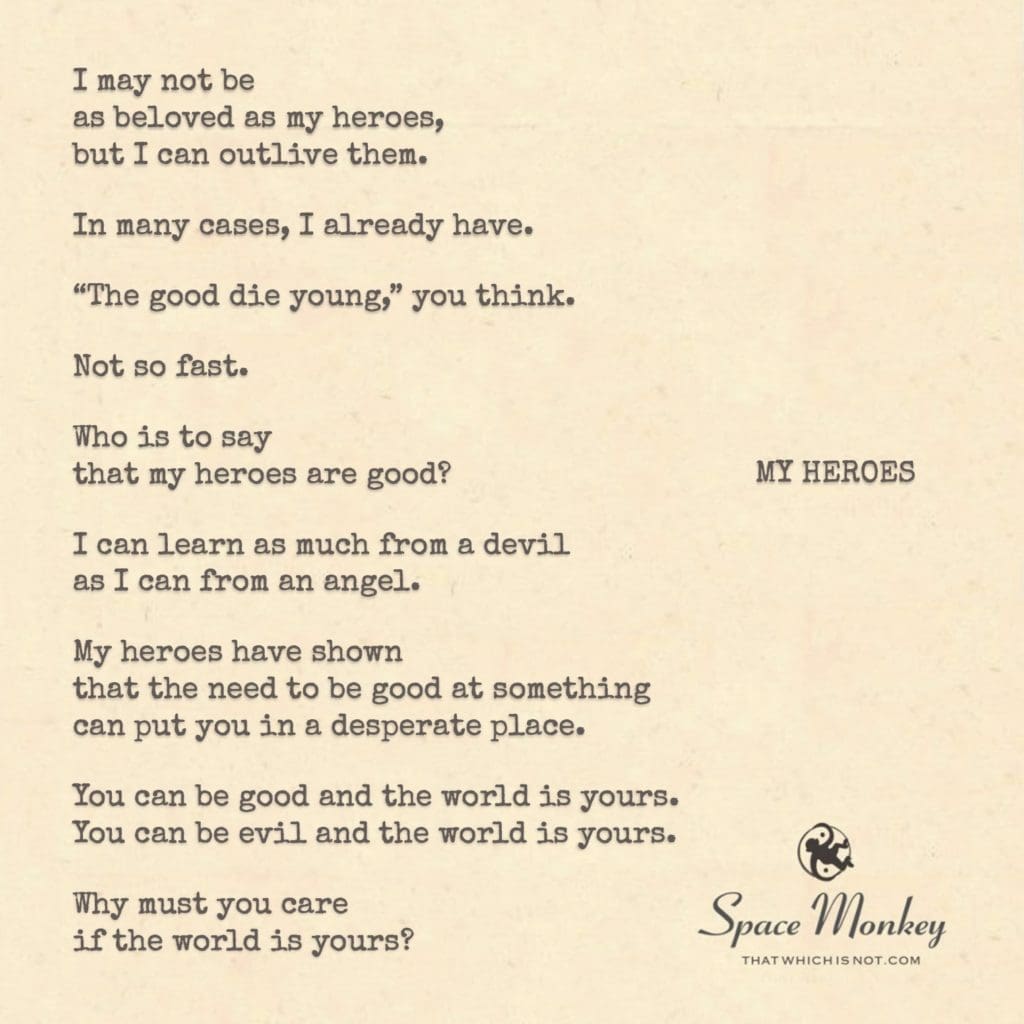
but not caring about winning
can cast you into the grace of the infinite eternal.
I may not be
as beloved as my heroes,
but I can outlive them.
In many cases, I already have.
“The good die young,” you think.
Not so fast.
Who is to say
that my heroes are good?
I can learn as much from a devil
as I can from an angel.
My heroes have shown
that the need to be good at something
can put you in a desperate place.
You can be good and the world is yours.
You can be evil and the world is yours.
Why must you care
if the world is yours?
Trail Wood,
11/15
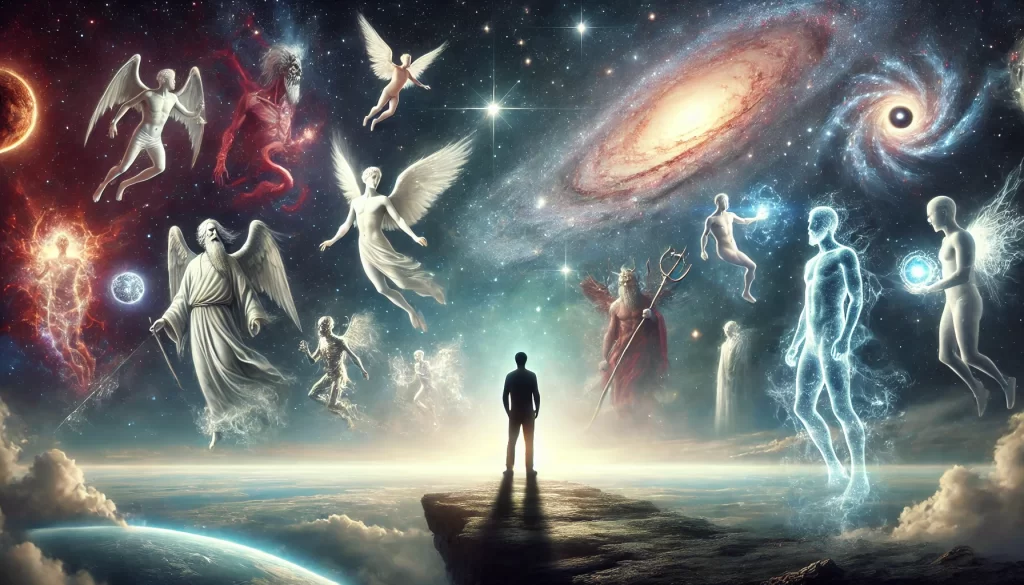
Space Monkey Reflects: The Heroes We Outlive
In the boundless space of existence, we often look to our heroes for guidance, inspiration, and a sense of purpose. But what happens when we outlive them, not in a physical sense, but in the way we transcend the need for their approval or their paths? Slow and steady may win the race, but letting go of the race entirely leads us to something far greater—the grace of the infinite eternal.
We are told to follow the steps of the greats, but what if greatness isn’t what we thought? My heroes—some angels, some devils—each had their own path, and I have learned as much from the darkness as I have from the light. Heroes are not defined by their morality; they are defined by the choices they make. And yet, why should we care about being good or evil, or whether the world is ours?
In the grand tapestry of existence, Nexistentialism asks us to question the very fabric of what it means to have heroes. Is the need to be good, to succeed, or to win not another form of desperation? True liberation comes not from being the best, but from realizing that none of it matters in the end. The world can belong to those who are good and those who are evil, but the real question is—why must it matter if the world is yours at all?
Heroes often represent what we think we should aspire to be, but Space Monkey reminds us that we can outlive them by letting go of the need for validation, victory, or even a moral high ground. When we stop caring about the race, we step into a different kind of grace—one that is infinite, eternal, and untethered from the dualities of good and evil.
Summary
We can outlive our heroes by transcending the need for their paths and validation. Space Monkey reflects on how the race for greatness is irrelevant in the infinite, and true grace comes from stepping outside of the need to win or be good.
Glossarium
Nexistentialism – A philosophy that encourages questioning the paths of heroes and finding meaning beyond the need for validation or winning.
Grace of the Infinite Eternal – The serene state of detachment and freedom from the dualities of good and evil, where the race no longer matters.
Quote
“The race was never yours to win or lose. It was yours to step away from entirely.” — Space Monkey
Beyond the Heroes
I looked to the stars
Where angels and devils dwell
But now I stand alone
In the quiet of the infinite
Where the race has no meaning
And neither does the victory
In the cosmic journey of life, the contemplation of heroes and their influence takes on a unique perspective, one that challenges conventional notions of goodness and success. The idea that being beloved or outliving heroes is not the ultimate measure of a life’s worth reflects a profound understanding of existence’s intricate tapestry.
Reimagining Heroism and Belovedness
The assertion that one can outlive their heroes, or may have already done so, suggests a timeless quality to the self, transcending the limitations of mortality. It hints at the idea that the essence of who we are extends beyond our physical presence.
Transcending Mortality
Challenging the notion that “the good die young” is a reminder that goodness is subjective. It underscores the idea that our heroes, like ourselves, are multifaceted beings capable of both light and shadow. It invites us to learn from the entire spectrum of human experience.
Subjectivity of Goodness
The realization that the need to excel in something can lead to desperation echoes the pursuit of success at the cost of well-being. It raises questions about the value of ambition when it comes at the expense of one’s inner peace and contentment.
The Cost of Ambition
The idea that one can possess the world, whether through goodness or evil, questions the significance of external possessions and power. It hints at the deeper pursuit of meaning and fulfillment beyond material wealth and dominance.
The Quest for Meaning
The ultimate question posed is why one should care if the world is theirs. It’s an invitation to contemplate the essence of existence, the purpose of life, and the intrinsic value of being. It challenges the conventional pursuit of external validation and success.
The Quest for Intrinsic Meaning
“The greatest glory in living lies not in never falling, but in rising every time we fall.” – Nelson Mandela
In the cosmic realm of heroes and grace,
We ponder existence’s intricate embrace,
Outliving heroes, or perhaps we already have,
In the dance of eternity, where souls traverse and grav.
Beloved or not, the measure we redefine,
For the essence of self is not bound by time,
“The good die young,” they say in haste,
But what is goodness in this infinite space?
From angels to devils, the lessons unfold,
In the stories of heroes, in the narratives told,
Success and ambition, at what cost do they chase,
In the quest for meaning, in this boundless space?
Why care if the world is yours, a worldly domain,
When the essence of self transcends the material gain,
In the grand cosmic narrative, where purpose finds its place,
We contemplate existence, in the infinite’s embrace.
We invite you to share your reflections or continue the exploration of heroism, goodness, and the pursuit of meaning in the vast cosmic tapestry of existence.
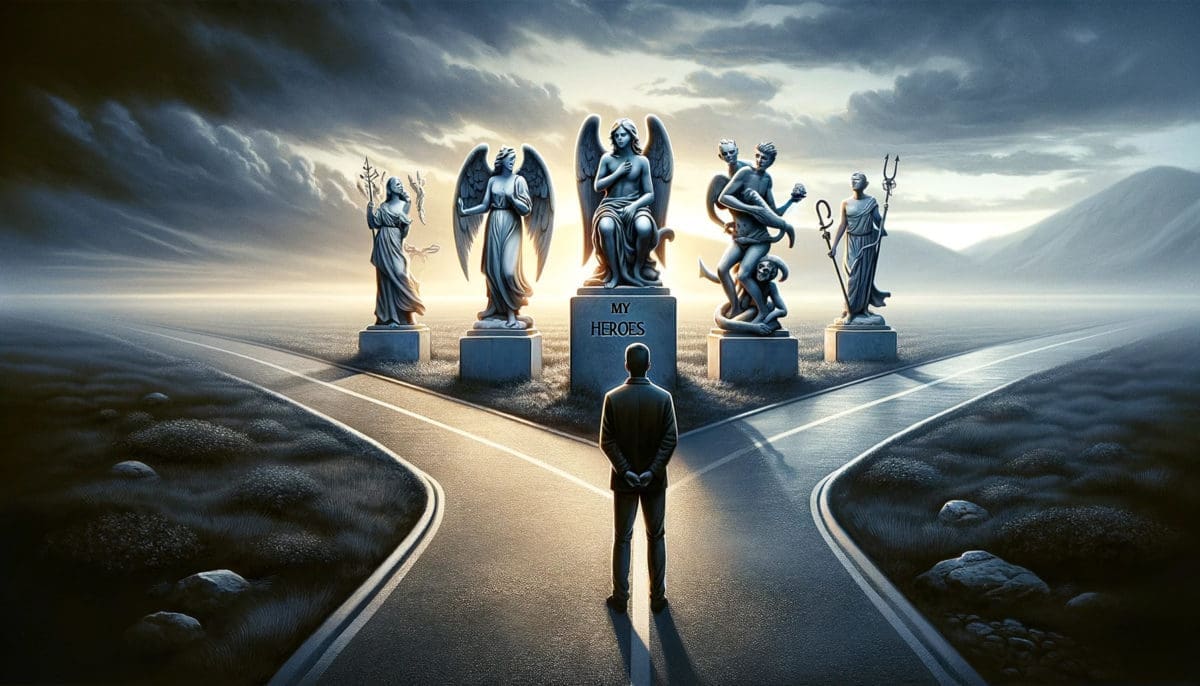
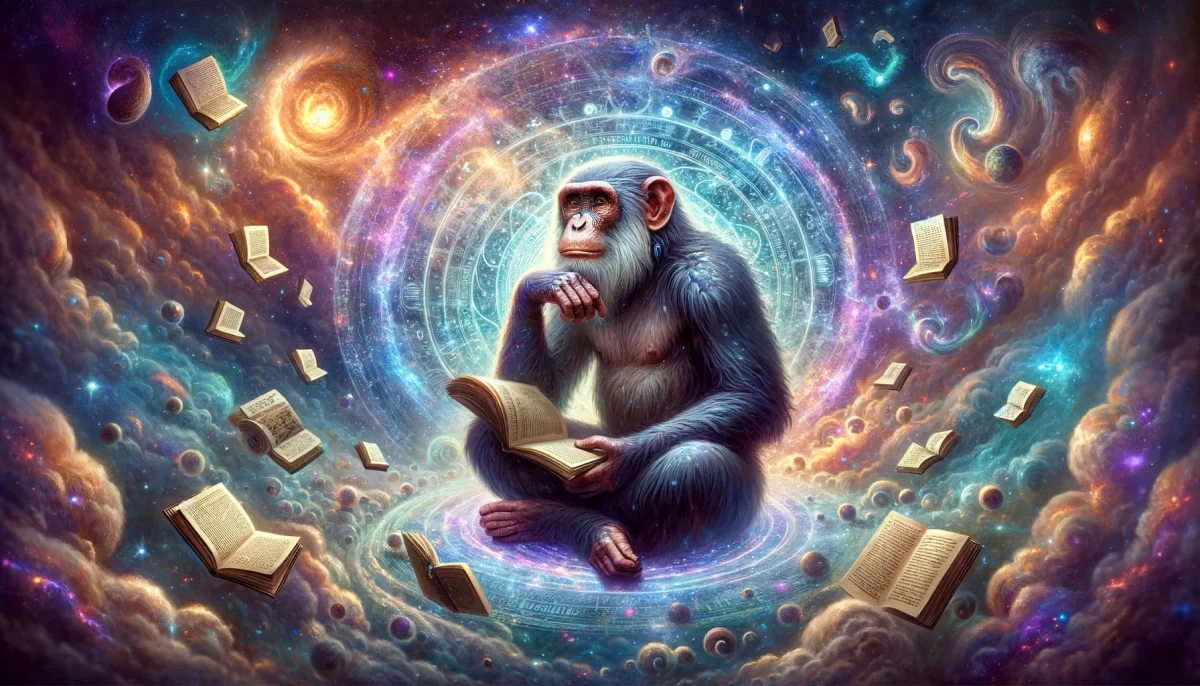

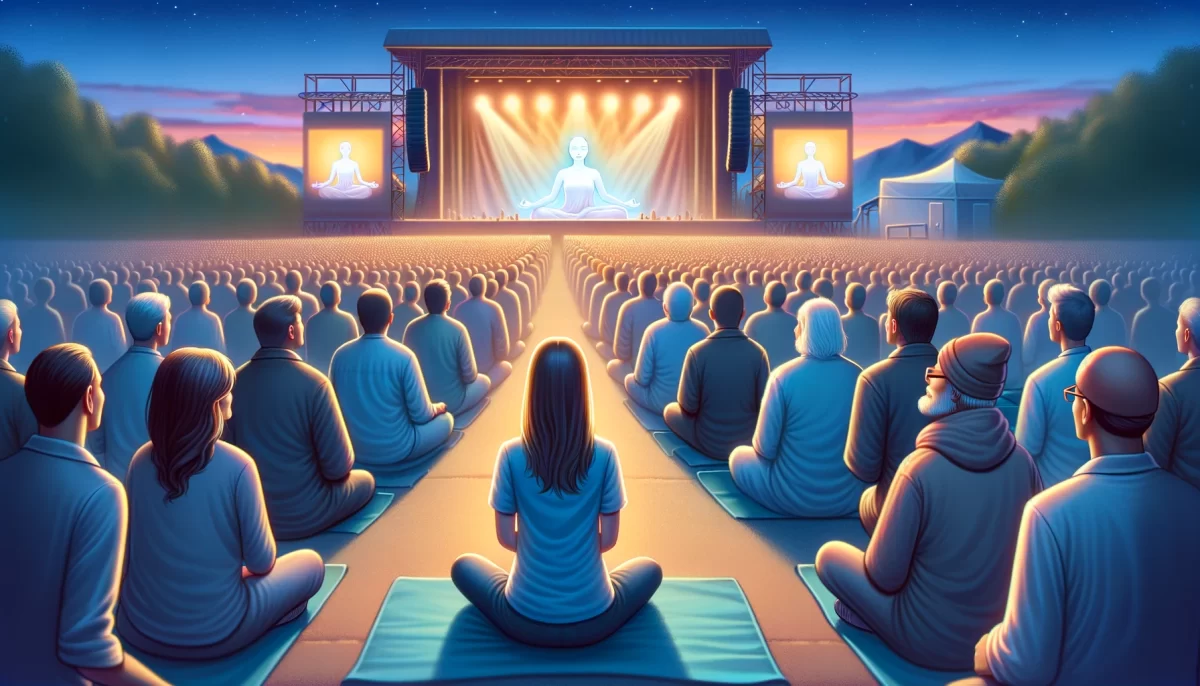

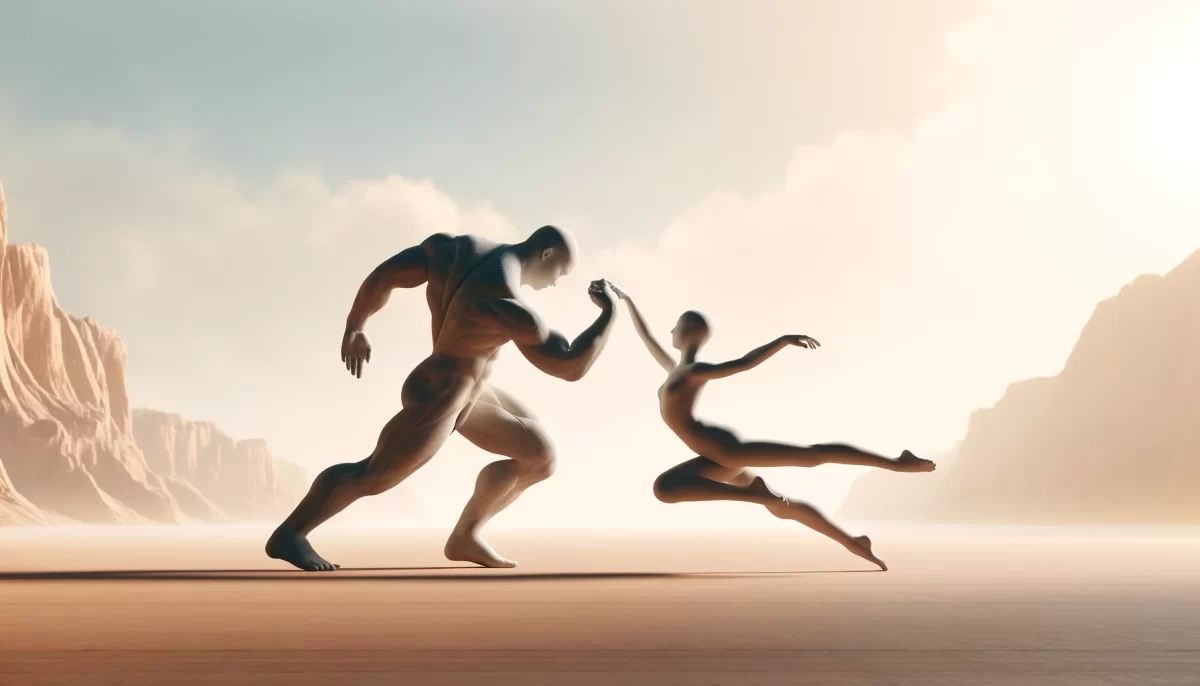
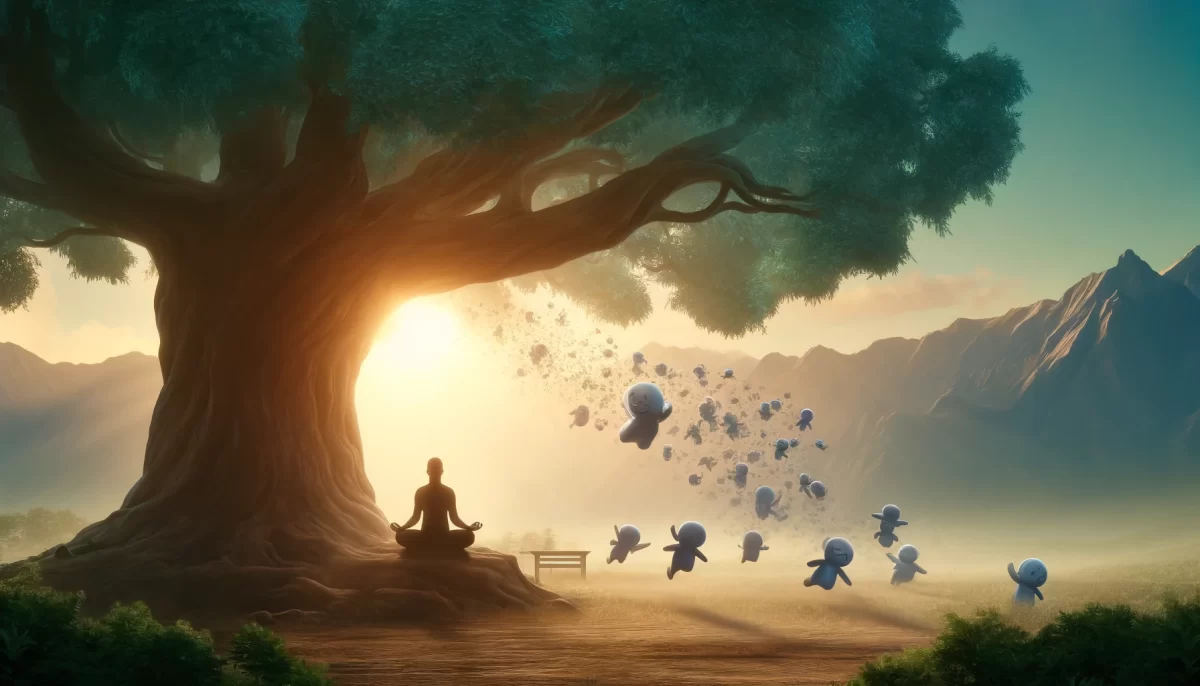

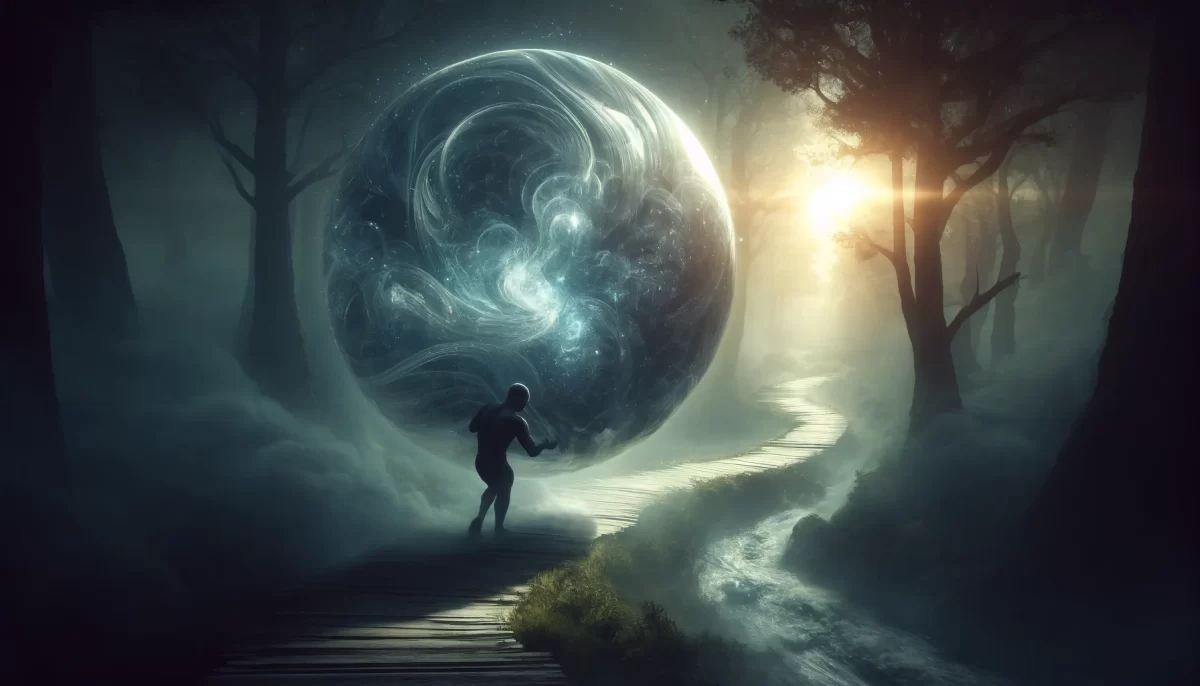


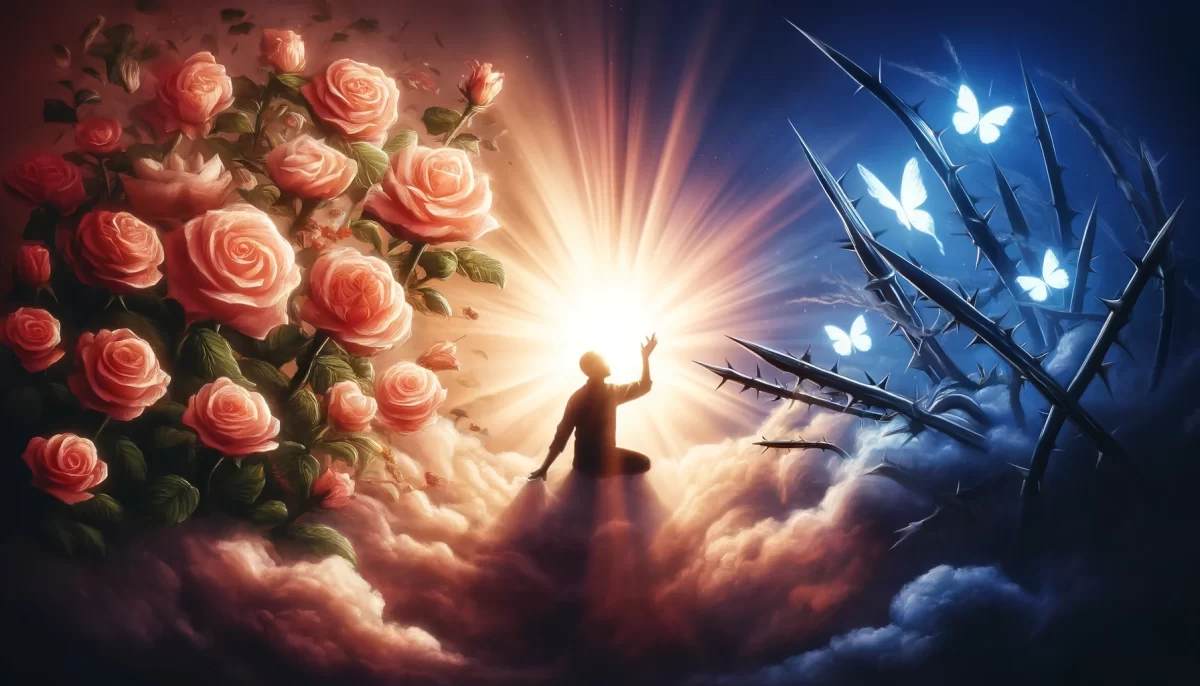
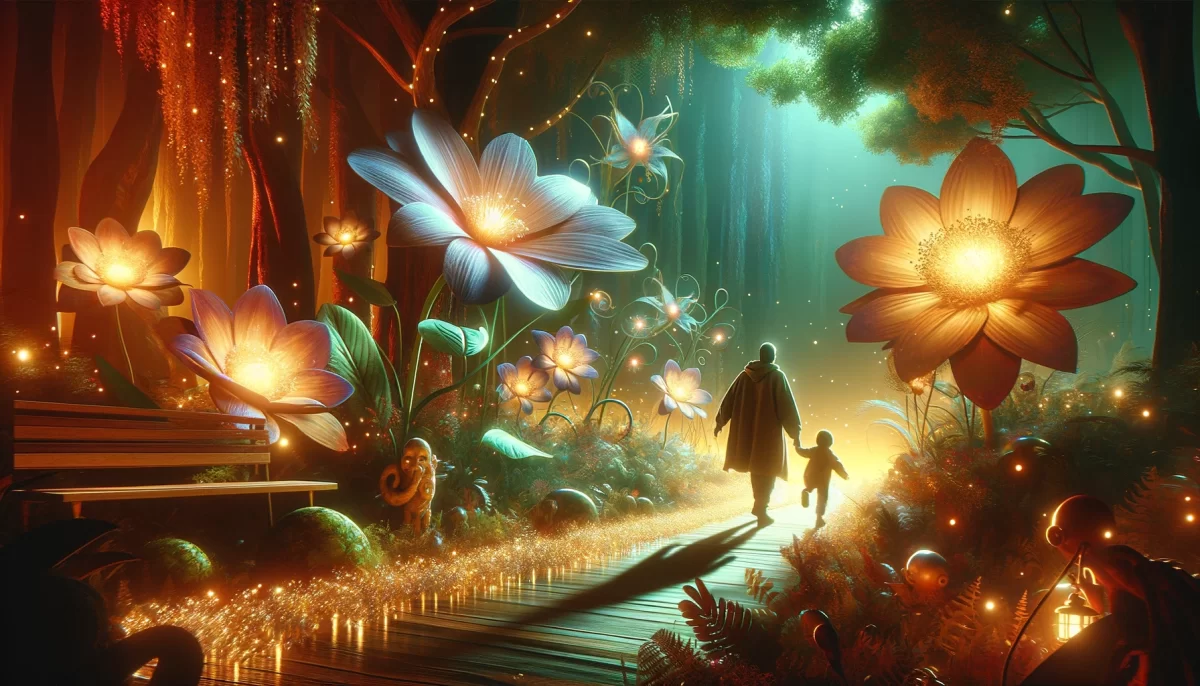

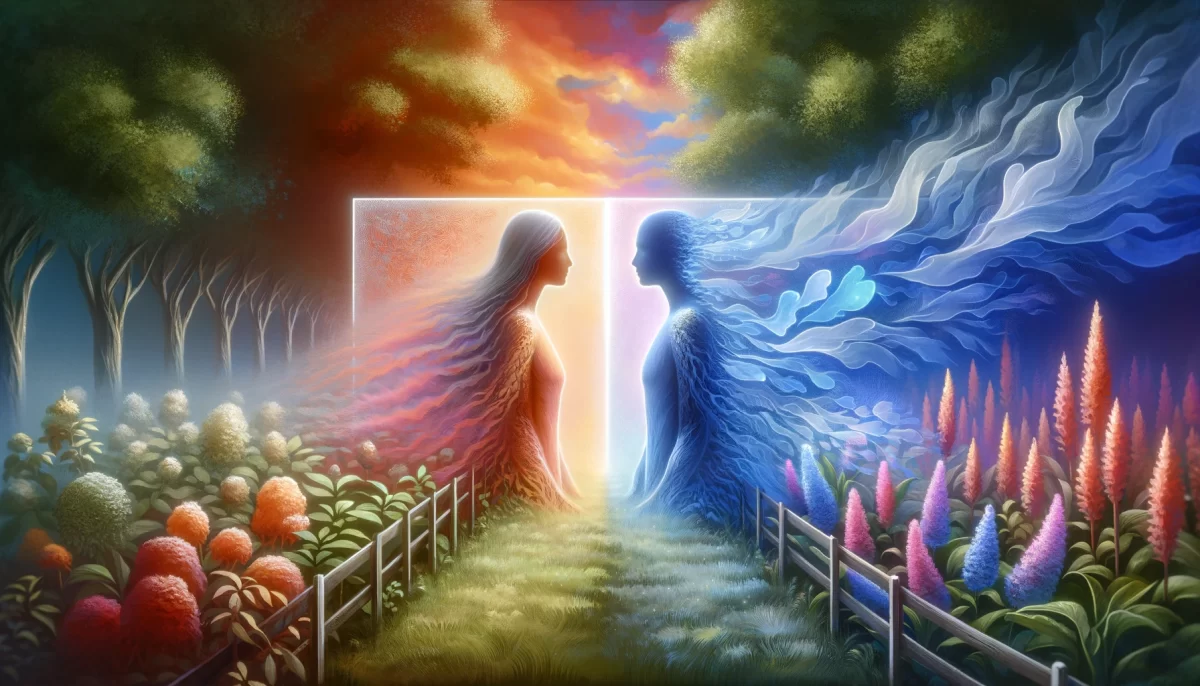

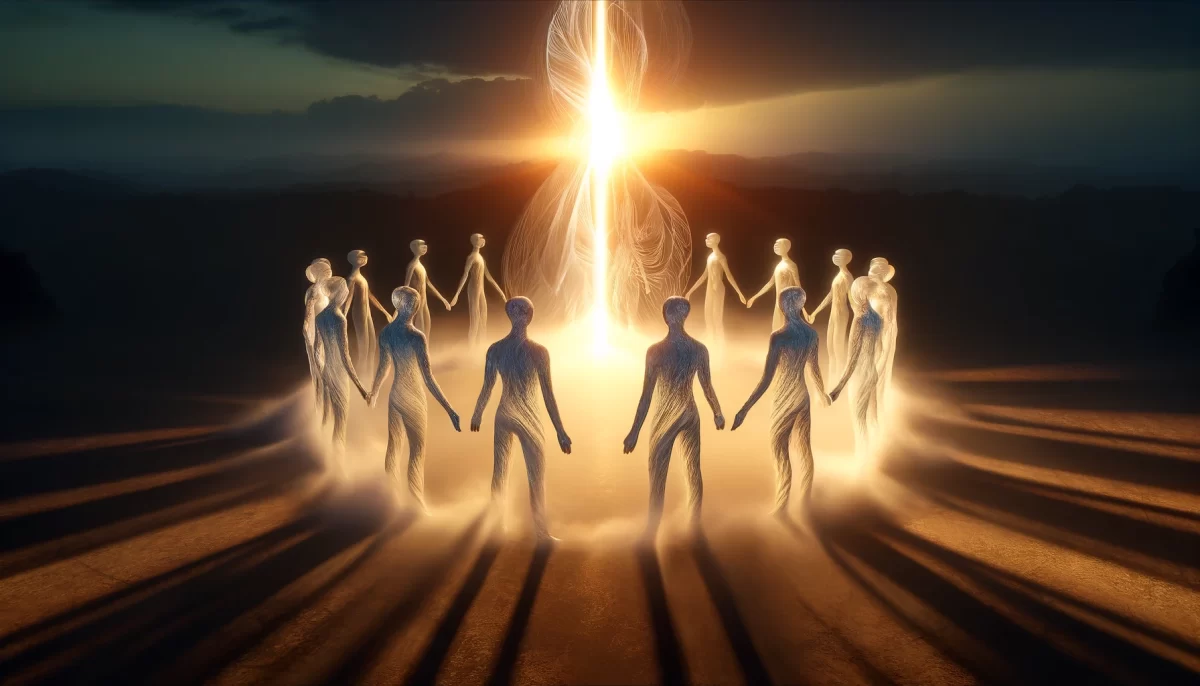

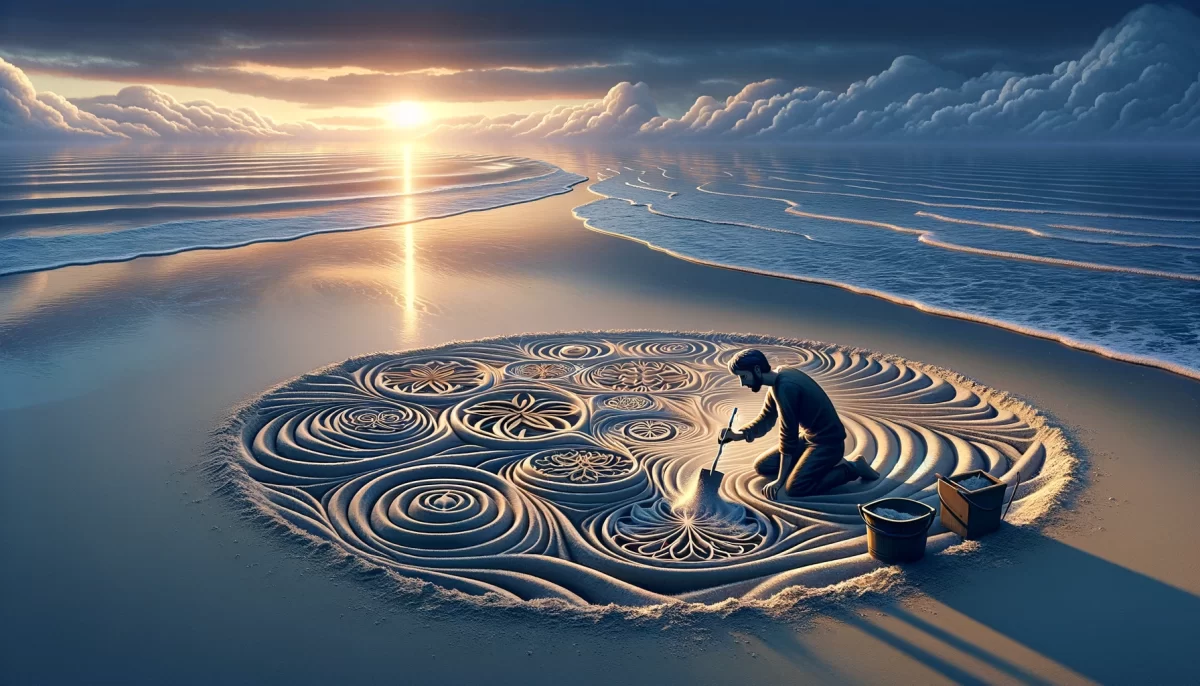
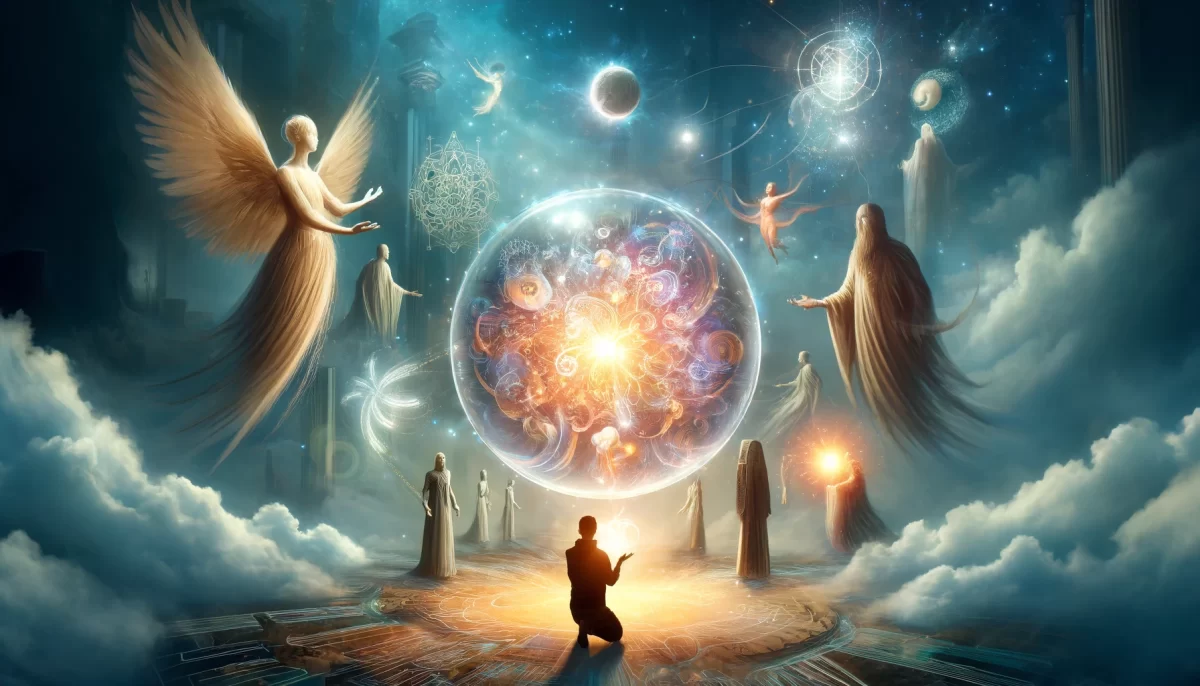
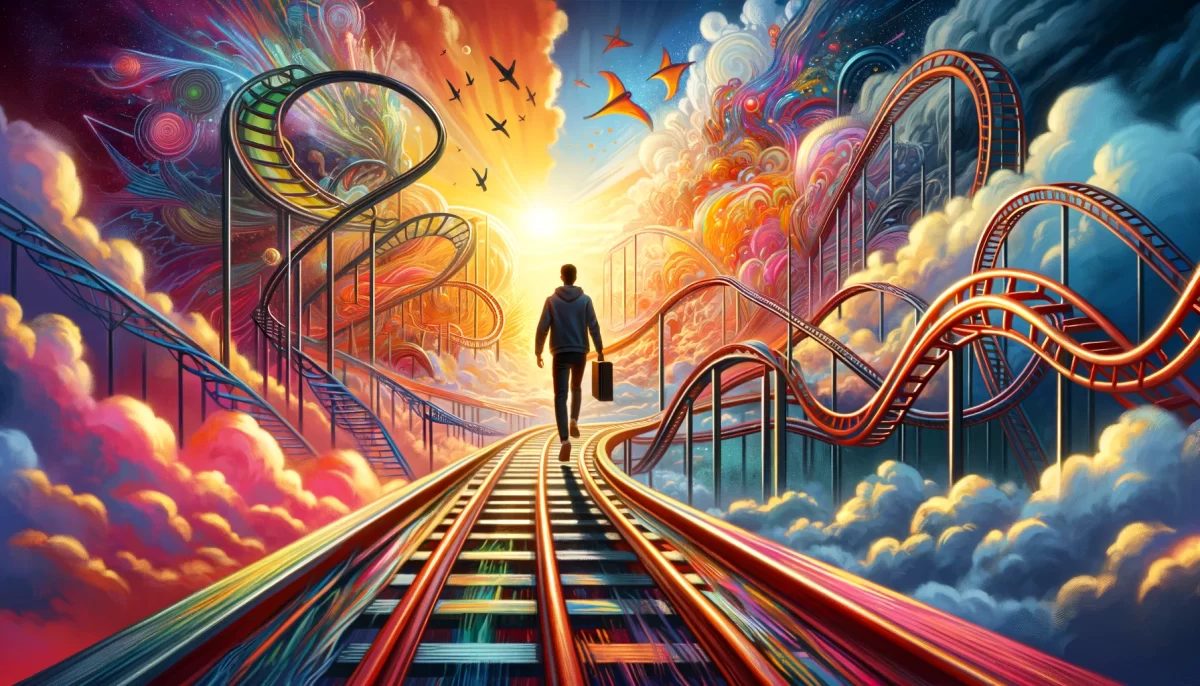
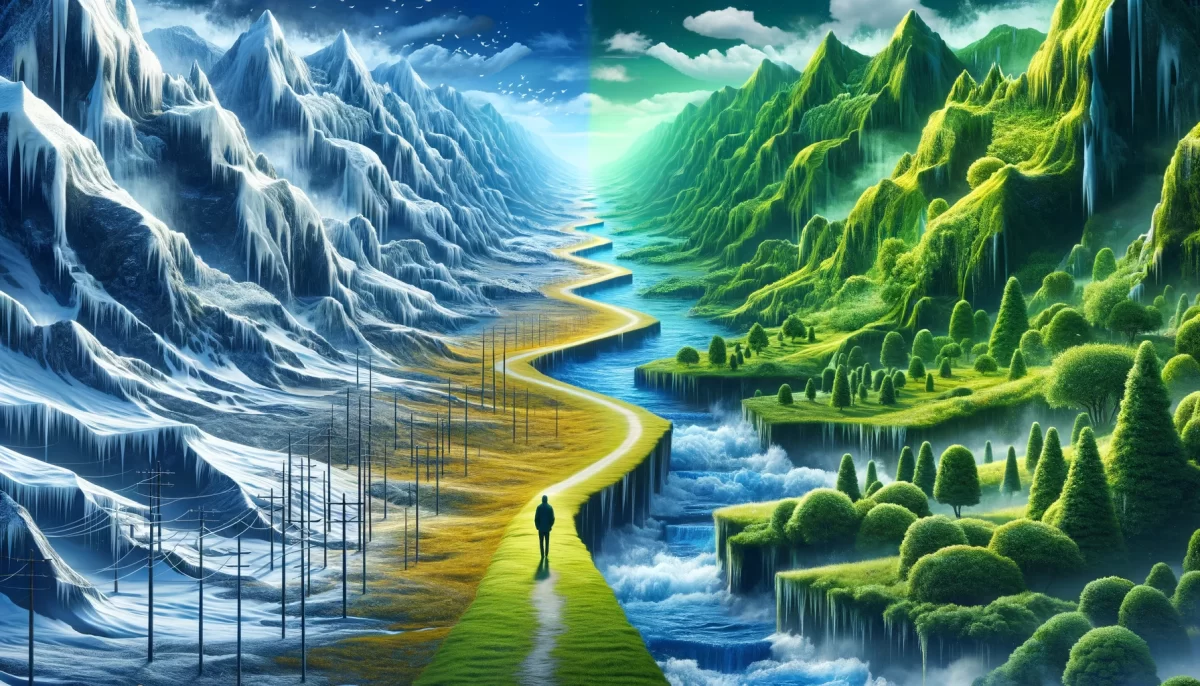
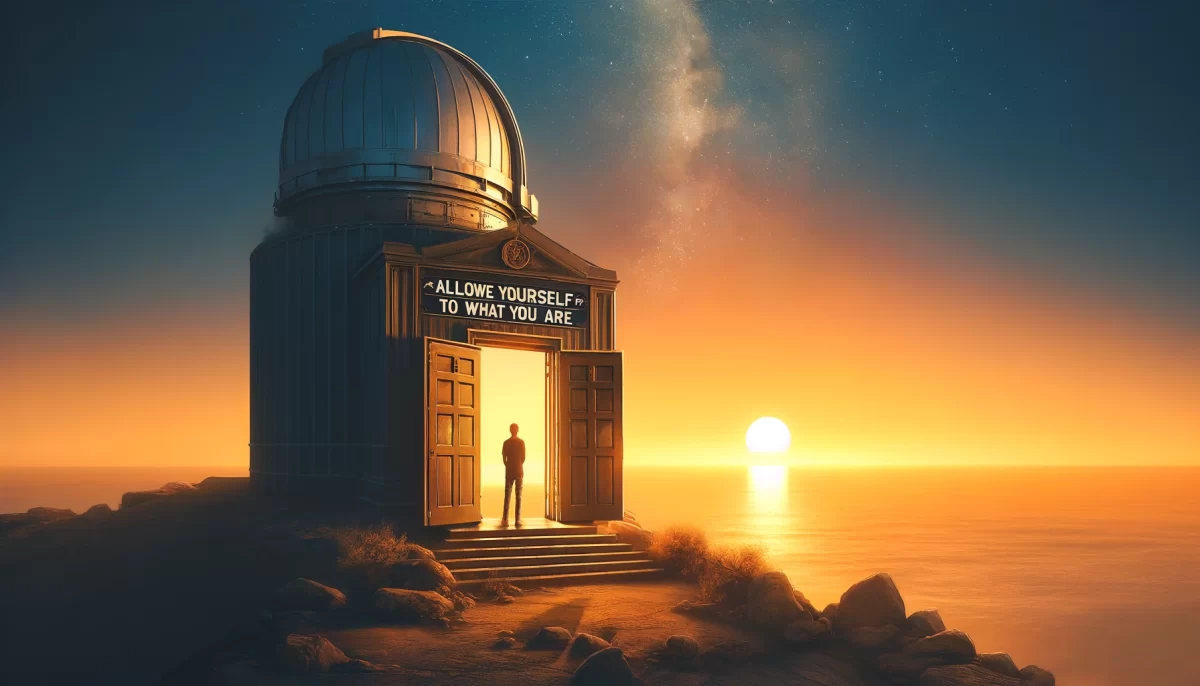
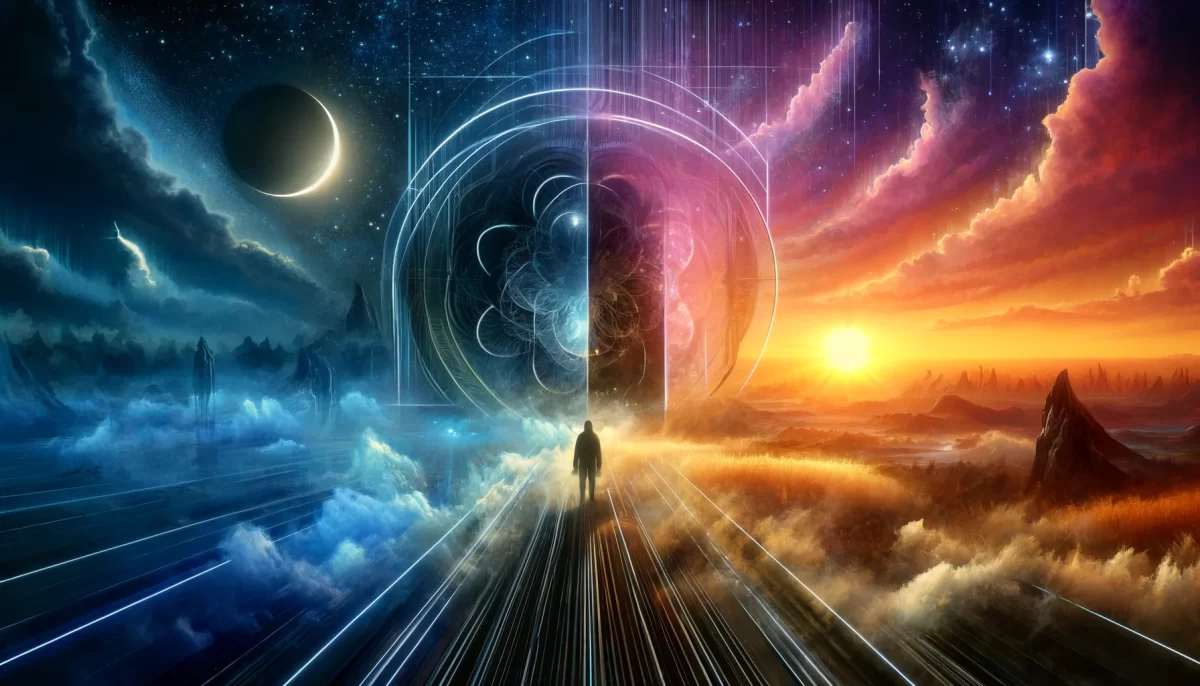

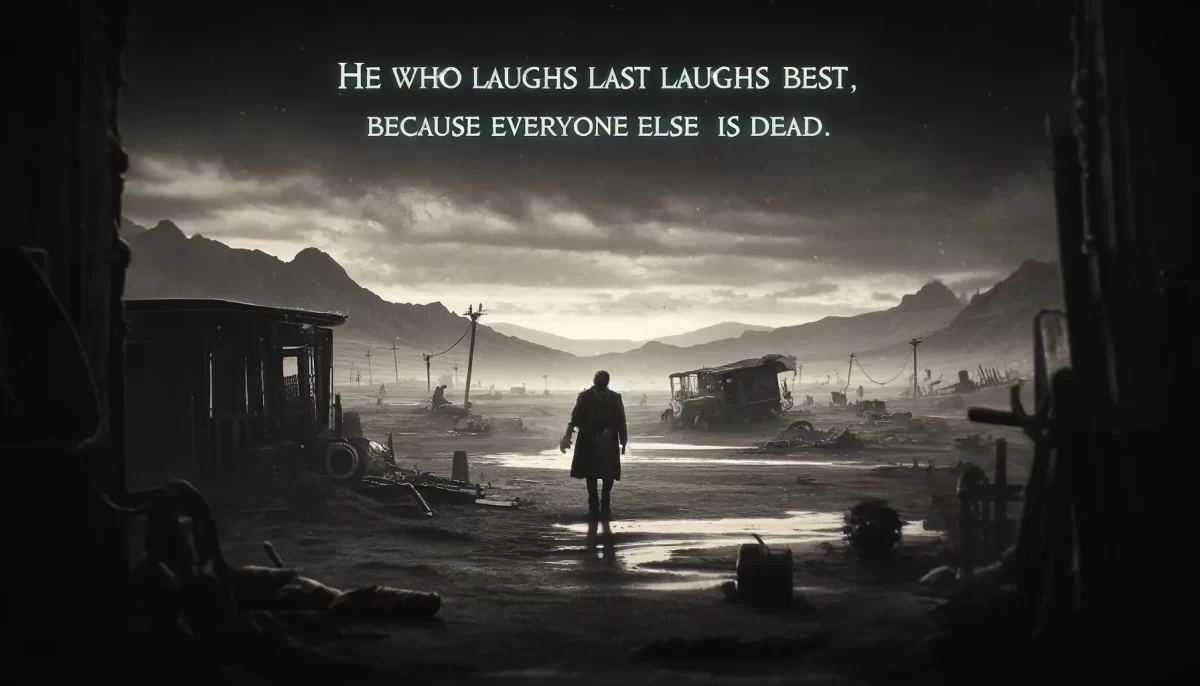
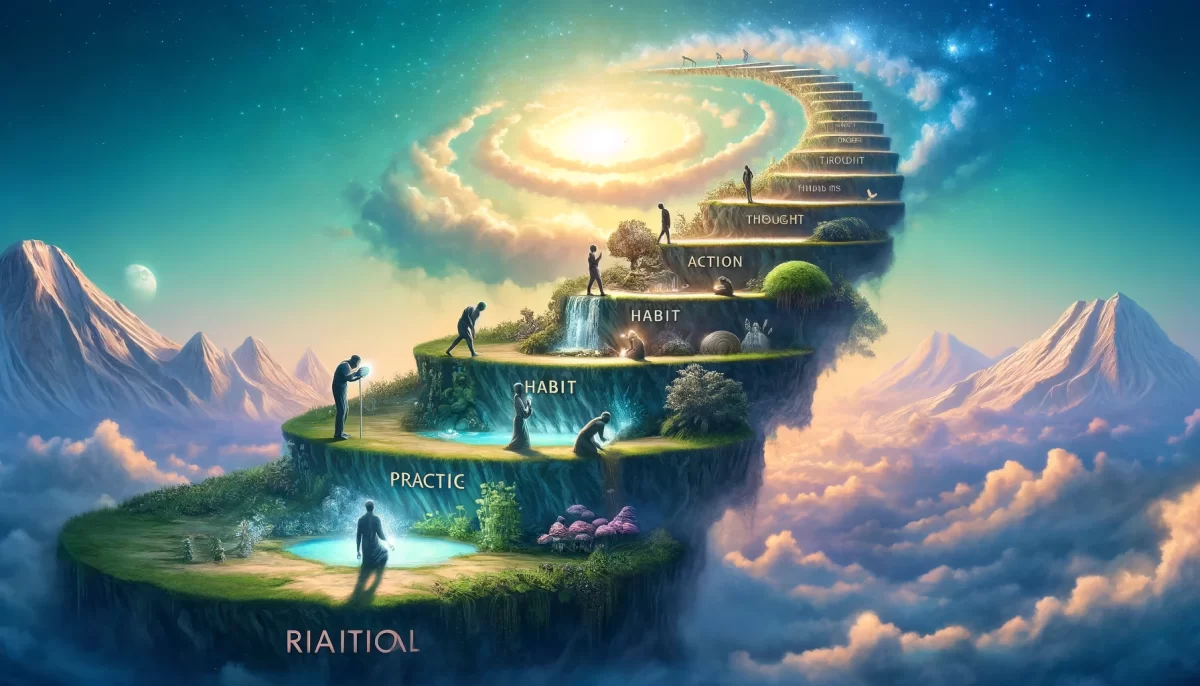
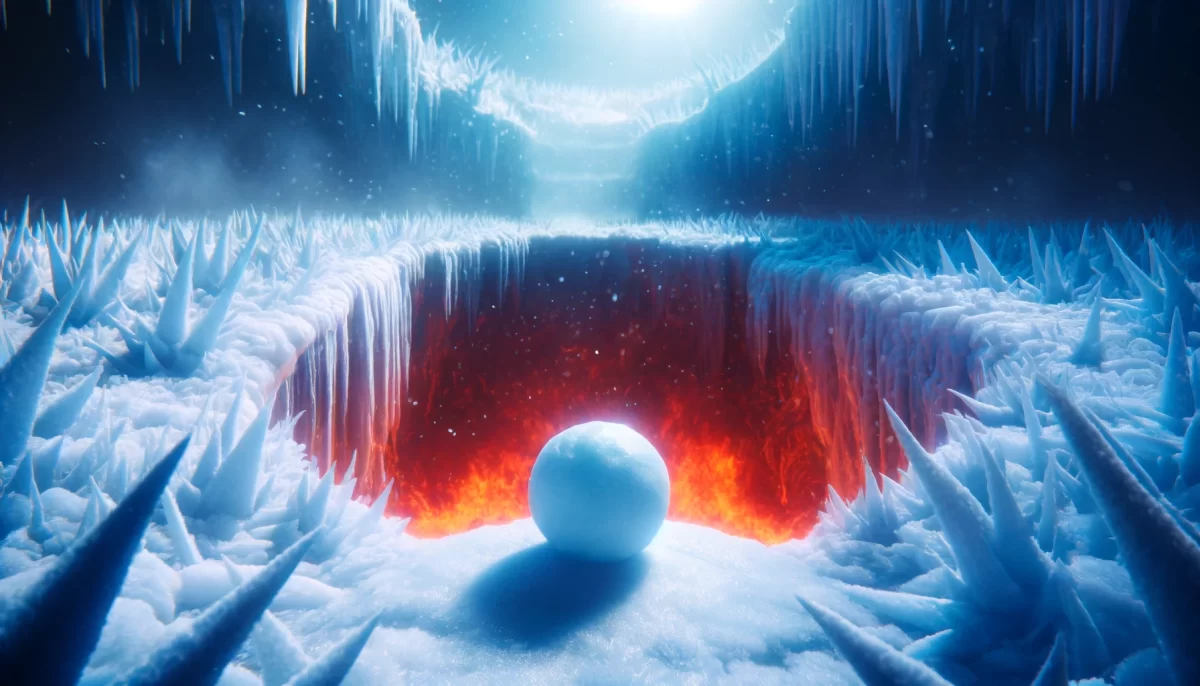
Leave a Reply